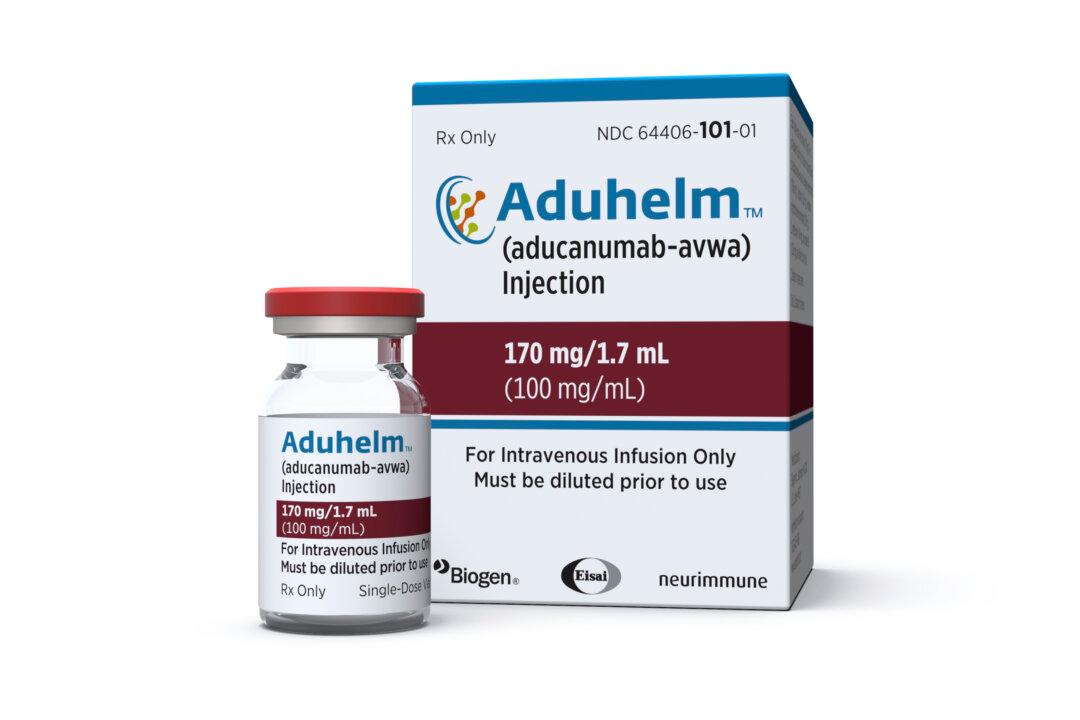The U.S. Food and Drug Administration’s (FDA) approval process of the controversial and costly new Alzheimer’s drug Aduhelm was “rife with irregularities” and “highly atypical,” according to a report released on Dec. 29 by the House Oversight and Energy and Commerce committees.
The report (pdf) is the result of an 18-month investigation conducted by the Committee on Oversight and Reform, and Committee on Energy and Commerce into the regulatory review and approval, pricing, and marketing of the Massachusetts-headquartered biotechnology company Biogen Inc.’s Alzheimer’s disease drug, aducanumab, which is widely known by the name Aduhelm.




